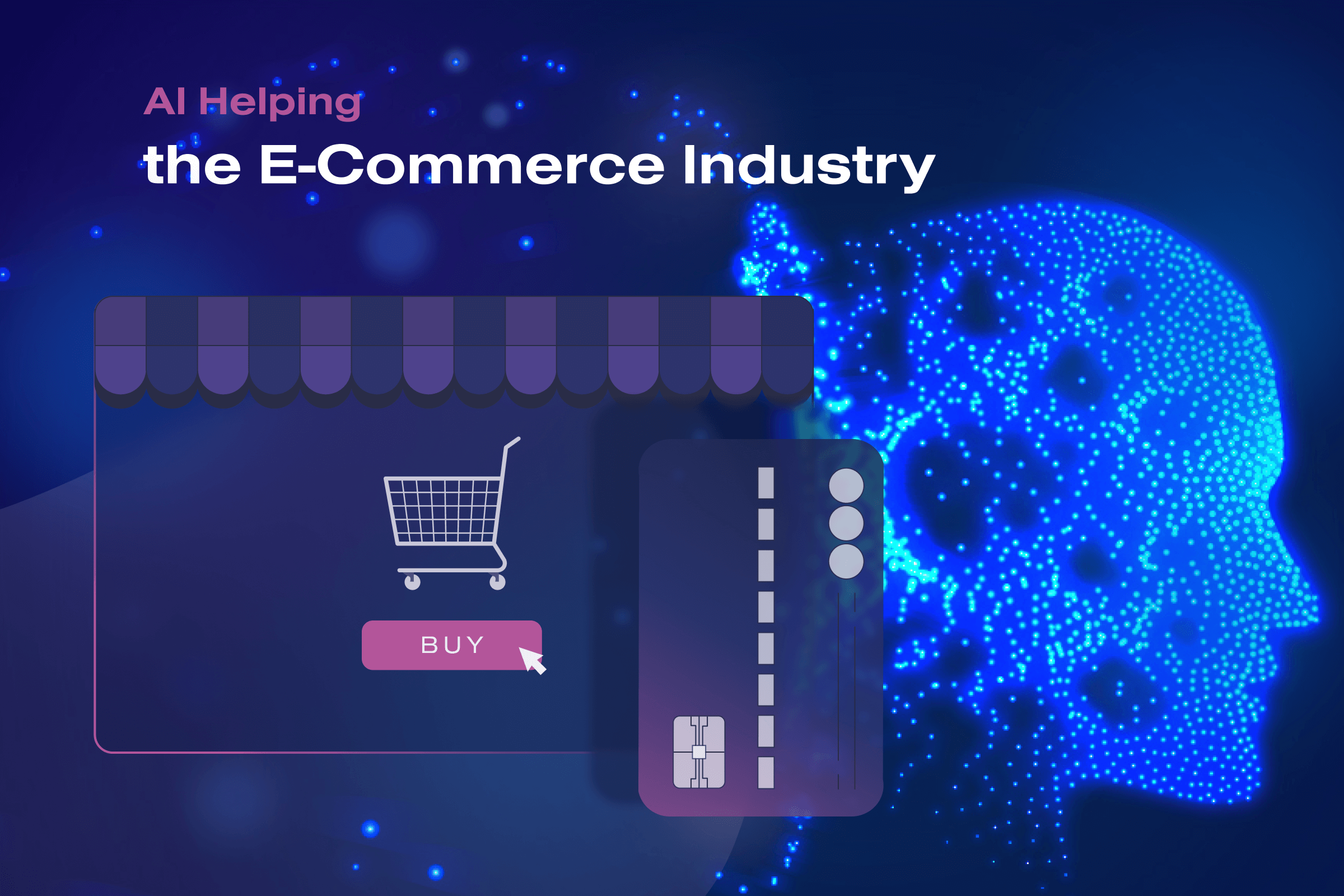In the realm of online retail, AI-Powered eCommerce is reshaping the landscape with its innovative automation techniques. This article delves into the transformative impact of automation on the online shopping experience, highlighting the benefits and possibilities that AI brings to the table.
Expanding further on the significance of AI in eCommerce platforms, this introduction sets the stage for a deep dive into the world of automated online retail.
Overview of AI-Powered eCommerce
AI-powered eCommerce refers to the use of artificial intelligence technologies to enhance and streamline online retail operations. This innovative approach is revolutionizing the way customers shop online by providing personalized recommendations, improving search functionalities, and optimizing inventory management. Automation plays a key role in transforming the online shopping experience, making it more efficient, convenient, and tailored to individual preferences.
Significance of AI in Online Retail
AI-powered eCommerce platforms leverage machine learning algorithms to analyze vast amounts of data and predict consumer behavior. By understanding customer preferences and shopping patterns, businesses can offer personalized recommendations and targeted marketing strategies. This leads to higher conversion rates, increased customer satisfaction, and ultimately, improved sales performance.
- Enhanced Customer Experience: AI-powered tools such as chatbots and virtual assistants provide 24/7 customer support, leading to improved engagement and satisfaction.
- Efficient Inventory Management: AI algorithms help retailers optimize inventory levels, reduce stockouts, and minimize overstock situations, leading to cost savings and improved operational efficiency.
- Dynamic Pricing Strategies: AI enables retailers to implement dynamic pricing based on market demand, competitor prices, and customer behavior, maximizing profitability and competitiveness in the market.
AI-Powered Personalization
AI-powered personalization in eCommerce refers to the use of artificial intelligence to tailor shopping experiences for individual customers based on their preferences, behavior, and purchase history. By leveraging AI algorithms, online retailers can provide personalized recommendations, product suggestions, and targeted promotions to enhance customer engagement and drive sales.
Enhanced Personalized Recommendations
AI enables eCommerce platforms to analyze vast amounts of data in real-time to understand each customer's unique preferences and shopping patterns. By utilizing machine learning algorithms, AI can predict what products a customer is likely to be interested in, leading to more accurate and relevant product recommendations.
This personalized approach not only improves the shopping experience but also increases the likelihood of conversion and repeat purchases.
- AI-powered recommendation engines, such as those used by Amazon and Netflix, analyze customer behavior to suggest products or content that align with their interests.
- Dynamic pricing algorithms adjust product prices based on customer data, optimizing pricing strategies for individual shoppers.
- Personalized email campaigns leverage AI to send targeted messages with relevant product recommendations, increasing open rates and conversions.
Tailored Shopping Experiences
AI plays a crucial role in creating tailored shopping experiences by personalizing every touchpoint in the customer journey. From product discovery to checkout, AI algorithms can optimize the user experience by presenting relevant content, offers, and recommendations at the right time and through the right channel.
- Chatbots powered by AI provide personalized assistance to customers, answering queries, offering product recommendations, and guiding them through the purchase process.
- Personalized landing pages display content and products tailored to each visitor's preferences, enhancing engagement and driving conversions.
- AI-driven customer segmentation allows retailers to target specific customer segments with personalized marketing messages, promotions, and discounts.
Successful AI-Driven Personalization Strategies
Several eCommerce companies have successfully implemented AI-driven personalization strategies to enhance the customer experience and boost sales. For example, online fashion retailer Stitch Fix uses AI algorithms to analyze customer preferences and style choices, delivering personalized clothing recommendations curated by stylists.
Similarly, Spotify leverages AI to create personalized playlists for each user based on their listening habits and preferences, enhancing user engagement and retention.
Automated Customer Support

AI-powered automation is revolutionizing customer service in online retail, offering efficient and effective solutions to address customer queries and concerns. One of the key applications of AI in customer support is the use of chatbots and virtual assistants to provide instant assistance to customers, enhancing the overall shopping experience.
Chatbots for Instant Support
Chatbots are AI-powered tools that can engage in conversations with customers in real-time, providing quick responses to common queries such as order status, product information, and returns. These chatbots are available 24/7, ensuring that customers can receive assistance anytime they need it.
By leveraging natural language processing (NLP) and machine learning algorithms, chatbots can understand and respond to customer queries accurately, improving customer satisfaction and reducing response times.
Virtual Assistants for Personalized Assistance
Virtual assistants, powered by AI, offer personalized support to customers by analyzing their preferences, purchase history, and browsing behavior. These assistants can recommend products, provide tailored suggestions, and assist customers throughout their shopping journey. By understanding customer needs and preferences, virtual assistants enhance the overall shopping experience, leading to increased sales and customer loyalty.
Efficiency and Effectiveness of AI-Powered Customer Support
AI-powered customer support solutions have proven to be highly efficient and effective in handling a large volume of customer inquiries simultaneously. By automating repetitive tasks and providing instant responses, AI helps businesses save time and resources while improving customer satisfaction.
Moreover, AI continuously learns from interactions with customers, allowing for continuous improvement in the quality of support provided.
AI-Driven Inventory Management

AI-driven inventory management has revolutionized the way online retailers handle their stock levels and predict demand. By leveraging artificial intelligence, businesses can streamline their inventory processes and ensure they have the right products available at the right time.
Optimizing Inventory Levels and Forecasting Demand
AI algorithms analyze historical data, market trends, and customer behavior to accurately predict demand for products. This helps businesses optimize their inventory levels, reducing the risk of overstocking or stockouts
Improving Inventory Tracking and Restocking Processes
Automation tools powered by AI can track inventory in real-time, providing retailers with accurate information on stock levels, sales patterns, and replenishment needs. This streamlines the restocking process and helps businesses avoid costly delays or shortages.
Case Studies of Businesses Benefiting from AI-Driven Inventory Management
- A leading online fashion retailer used AI algorithms to analyze sales data and predict upcoming trends, allowing them to stock the right products in advance and increase sales.
- An electronics retailer implemented AI-powered inventory tracking systems to monitor stock levels across multiple warehouses, reducing fulfillment errors and improving customer satisfaction.
- A global e-commerce giant utilized AI to forecast demand for seasonal products, enabling them to adjust inventory levels proactively and avoid excess stock at the end of each season.
Enhanced Fraud Detection
AI plays a crucial role in detecting and preventing online fraud in eCommerce by leveraging advanced technologies to identify suspicious activities and protect online retailers from potential threats. Machine learning algorithms are employed to analyze vast amounts of data in real-time, enabling the system to recognize patterns and anomalies that may indicate fraudulent behavior.
Role of AI in Fraud Detection
AI-powered systems can automatically flag transactions that deviate from typical customer behavior or show signs of fraudulent activity. By continuously learning and adapting to new fraud patterns, these systems can enhance security measures and reduce the risk of online scams.
Additionally, AI can help streamline the process of fraud detection by quickly identifying potential threats and taking proactive measures to mitigate risks.
Machine Learning Algorithms for Fraud Detection
- Supervised Learning: Algorithms are trained on labeled data to classify transactions as either legitimate or fraudulent based on past examples.
- Unsupervised Learning: Algorithms detect anomalies in the data that may indicate fraudulent activities without the need for labeled training data.
- Deep Learning: Neural networks are used to analyze complex patterns and relationships in data to detect fraudulent behavior.
AI Tools for Fraud Prevention
-
FraudScore:
A machine learning-based tool that assesses the risk of fraud in real-time by analyzing various data points and transaction patterns.
-
Sift Science:
Utilizes machine learning algorithms to detect fraudulent activities and prevent chargebacks by providing a fraud score for each transaction.
-
Kount:
Offers AI-driven fraud detection solutions that help online retailers identify and block fraudulent transactions before they occur.
AI-Powered Marketing Strategies
AI-powered marketing strategies have revolutionized the way online retailers engage with their customers. By leveraging the capabilities of artificial intelligence, businesses can create targeted marketing campaigns that are tailored to individual preferences and behaviors. This personalized approach not only enhances customer satisfaction but also increases conversion rates.
Utilization of AI in Targeted Marketing Campaigns
AI is utilized to analyze a vast amount of customer data, including browsing history, purchase patterns, and demographic information, to identify trends and preferences. This data is then used to create targeted marketing campaigns that are highly relevant to each customer.
By delivering personalized recommendations and offers, businesses can increase customer engagement and loyalty.
Effectiveness of AI in Analyzing Customer Data
- AI algorithms can analyze customer data in real-time, enabling businesses to respond promptly to changing market trends and consumer preferences.
- By identifying patterns and correlations in the data, AI can predict future buying behaviors and help businesses optimize their marketing strategies.
- AI-powered analytics tools provide actionable insights that enable businesses to make data-driven decisions and improve the effectiveness of their marketing campaigns.
Future of AI-Driven Marketing in eCommerce
As AI technology continues to advance, the future of AI-driven marketing in the eCommerce industry looks promising. Businesses will be able to further refine their targeting strategies, personalize customer interactions, and automate marketing processes to drive growth and profitability.
Final Conclusion

As we wrap up our discussion on AI-Powered eCommerce and the influence of automation on online retail, it's clear that the future of shopping is evolving rapidly. The potential of AI to enhance customer experiences and streamline operations is undoubtedly a game-changer in the industry.
Answers to Common Questions
What are the benefits of implementing AI in eCommerce platforms?
Implementing AI in eCommerce platforms can lead to improved personalized recommendations, enhanced customer support, optimized inventory management, efficient fraud detection, and targeted marketing campaigns.
How does AI enhance personalized recommendations for shoppers?
AI uses algorithms to analyze customer data and shopping behavior to provide personalized product recommendations based on individual preferences and browsing history.
What is the role of AI in creating tailored shopping experiences?
AI helps create tailored shopping experiences by personalizing product recommendations, offers, and promotions to match the preferences and needs of each individual customer.
How is AI transforming customer service in online retail?
AI is transforming customer service by enabling chatbots and virtual assistants to provide instant support, resolve queries, and offer personalized assistance to customers 24/7.
What impact does AI have on optimizing inventory levels and forecasting demand?
AI optimizes inventory levels by analyzing data to predict demand patterns, reducing excess stock and minimizing stockouts, leading to improved inventory management efficiency.



